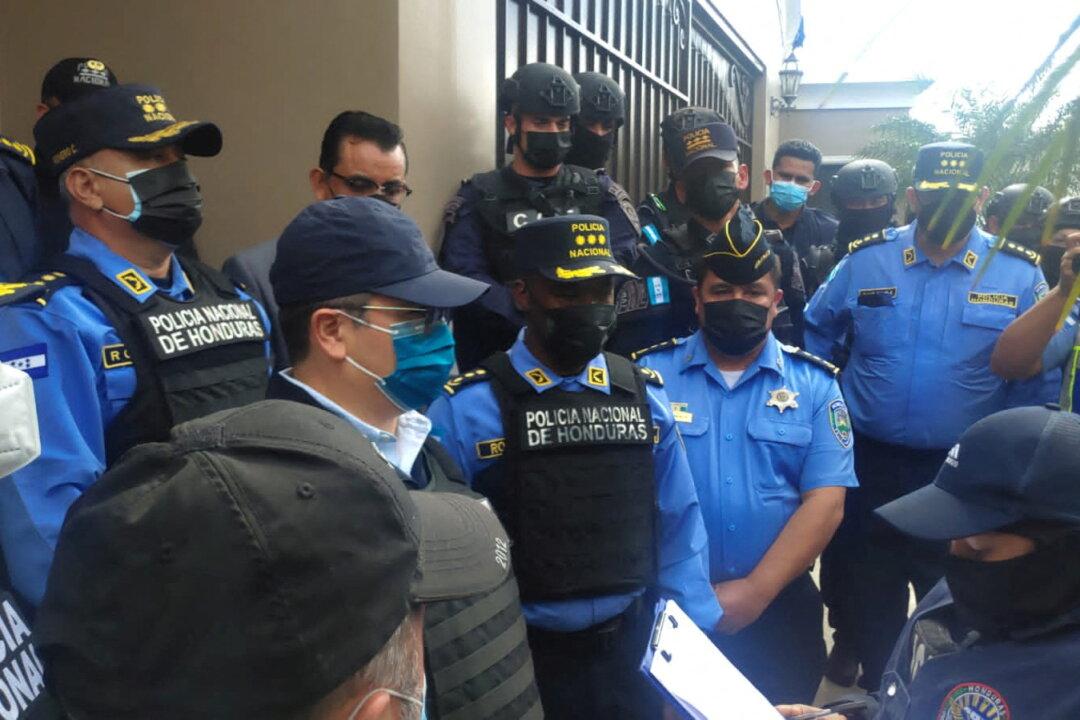SANTA CRUZ, Bolivia—Accusations of narcotics smuggling, bribery, and collusion have piled up against former Honduran President Juan Orlando Hernández, culminating in an arrest at his private residence in Tegucigalpa, Honduras, on Feb 15.
Following Hernández’s apprehension, his wife, Ana Garcia, said in a Feb. 21 statement that drug cartels were seeking revenge for their members being extradited to the United States during Hernández’s administration, which she said was the motive behind his sudden capture less than a month after leaving office.





